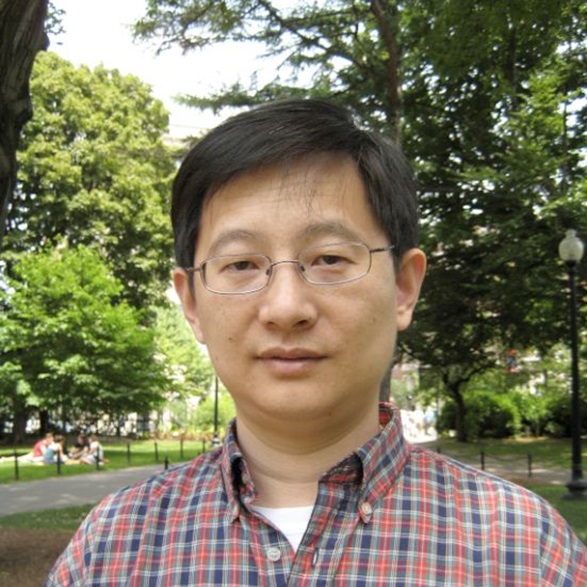SPEAKERS

Wenyi Wei
AFFILIATION:
Beth Israel Deaconess Medical Center, Harvard Medical School, Boston, MA, USA
POSITION TITLE:
Professor, Department of Pathology
Director, Biochemistry Program
EDUCATION/TRAINING:
Shandong University, Jinan, P.R. China B.A. 1993 Microbiology
Chinese Academy of Sciences, Beijing, P.R. China M.S. 1996 Biochemical Engineering
Brown University, Providence, RI Ph.D. 2002 Molecular Biology, Cell Biology and Biochemistry
Dana-Farber Cancer Institute, Boston, MA Postdoc 2006 Cancer Biology
HONORS:
2005-2007 Claudia Adams Barr Award for Innovative Basic CancerResearch, Dana-FarberCancer Institute, Harvard Medical School
2005-2008 Special Fellow, the Leukemia & Lymphoma Society
Jan.-Dec. 2007 Milton Fund Award, Harvard Medical School
2007-2009 Emerald Foundation Award for New Investigator
2007-2009 Kimmel Scholar
2008-2010 V Scholar
2009-2010 Karin Grunebaum Cancer Research Foundation FacultyResearch Fellowship
2009-2012 Department of Defense Prostate Cancer Program NewInvestigator Award
2009-2012 Massachusetts Life Science Center New Investigator Award
2011-2013 BIDMC Prostate Research Program New Investigator Award
2011 Excellence in Tutoring Award, Harvard Medical School
2012-2016 American Cancer Society Research Scholar
2013-2018 Leukemia and Lymphoma Society Research Scholar
2015 Elected Fellow, American Association for the Advancement of Science(AAAS)
2020 NCI Outstanding Investigator (OIA) R35 award
RESEARCH INTERESTS:
The major research focus of Dr. Wei’s laboratory is to understand the molecular mechanisms responsible for cancer development. More specifically, they are interested in elucidating the underlying mechanisms that define the oscillation of APC and SCF activities, the two major E3 ubiquitin ligase complexes, in different cell cycle phases and how aberrant APC and/or SCF E3 ligase activity contributes to tumorigenesis. To this end, the efforts have been made to identify novel downstream targets for both APC and SCF complexes, which will help pinpoint their functions in both cell control and tumor formation. The group has identified the SCF component Skp2 as an APCCdh1ubiquitin substrate (Nature, 2004), and showed that aberrant activation of the upstream oncogenic signaling such as Akt could stabilize Skp2 (Nature Cell Biology, 2009). The group also identified a novel acetylation- dependent regulation of Skp2 oncogenic activity to govern tumorigenesis (Cell, 2012). Moreover, the laboratory also focuses on identifying novel E3 ligases that could regulate many cellular processes including cellular metabolism (Molecular Cell,2011), senescence and tumorigenesis (Molecular Cell, 2010). The group recently identified SCFß-TRCP as a novel E3 ligase that targets the oncoprotein MDM2 for proteasome-mediated degradation pathway (Cancer Cell, 2010), as well as in regulating cellular angiogenesis by promoting the ubiquitination and destruction of VEGFR2 (J. Exp.Med., 2012). The group has also demonstrated that SCFFbw7 governs cell growth by promoting the ubiquitination of cJun (Cancer Cell, 2005), as well as regulates cellular apoptosis by targeting the prosurvival protein MCL-1 for ubiquitination and degradation (Nature, 2011). The group recently also identified NFkB2 as a novel Fbw7 substrate (Cell Reports, 2012) and Pin1 as a novel upstream negative regulator of Fbw7 (Molecular Cell, 2012). Ultimately, Dr. Wei’s research will help identify novel ubiquitin ligases, their substrates and their mechanisms of regulation, which will lead to the development of novel therapeutics to combat aging related diseases including cancer and Alzheimer’s disease.
PUBLICATIONS:
List of published work in Google Scholar:
https://scholar.google.com/citations?hl=zh-TW&user=765nrr4AAAAJ